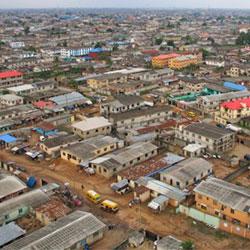Designing out waste
Barriers for material recirculation in society and the possible ways to support material recirculation in the future is the topic of Isabel Ordóñez Pizarro's doctoral thesis Designing out waste: Exploring barriers for material recirculation.
Material recirculation is seen as a way to use waste materials for new production of goods. Global material resources are still mostly linear, meaning that resources are taken from nature to use for the production of goods that are later transformed into waste. For the past 40 years global resource consumption has been above the planet’s capacity to provide these resources. Both population growth and consumption are predicted to increase. Inadequately handled waste is therefore an increasing risk to human health and the environment. To use waste as a resource for future production is a more sustainable alternative for material resource use.
Two case studies addressed the topics sorting waste and designing with waste. Waste sorting is seen as a precondition to designing with waste. How design currently relates to material recirculation was also investigated, given that waste can be seen as a design flaw and there are many design strategies aimed at waste minimization.
Six barriers hindering recirculation
The conclusion from the thesis shows that there are six main barriers hindering material recirculation. These include; the complexity of sustainable waste management, the need of reliable material knowledge, lack of information, undefined responsibilities, lack of control and more time/effort required. The thesis also suggests possible ways to support recirculation in the future, which implies drastic changes in the existing socio-technical systems which produce, consume and discard material goods.
Policy recommendations
“In order to address the barriers found, policy would need to; develop quality standards for secondary materials, strive for more transparency about what materials are used in society, require recirculation at the design stage and aim to recirculate all the materials used in the production of goods.
Besides policy recommendations, the results suggest that designers could work within the Waste Management branch to facilitate the collaboration with manufacturers and better integrate service user requirements to the development of waste systems.” says Isabel Ordóñez Pizarro.
On January 27th 2017 Isabel Ordóñez Pizarro will defend her doctoral thesis, the faculty opponent is María José Zapata Campos, University of Gothenburg. Researcher Oskar Rexfelt, Design & Human Factors, Product and Production Development, Chalmers University of Technology has been the supervisor for the PhD work.
Read more about Isabel Ordóñez Pizarro's PhD project From Waste to Resources
Questions?
Please contact Isabel Ordóñez Pizarro, isabel.ordonez@chalmers.se, +46 (0)31 772 13 77.
Other recent PhD defences
Inclusive place branding – What it is and how to progress towards it, Eva Maria Jernsand, University of Gothenburg
Communicative Interfaces for Planning - Social learning in participatory local networks in a Swedish context, Lisa Bomble, Chalmers University of Technology







